Haosi Yang
Trajectory and power design for aerial CRNs with colluding eavesdroppers
Oct 21, 2023


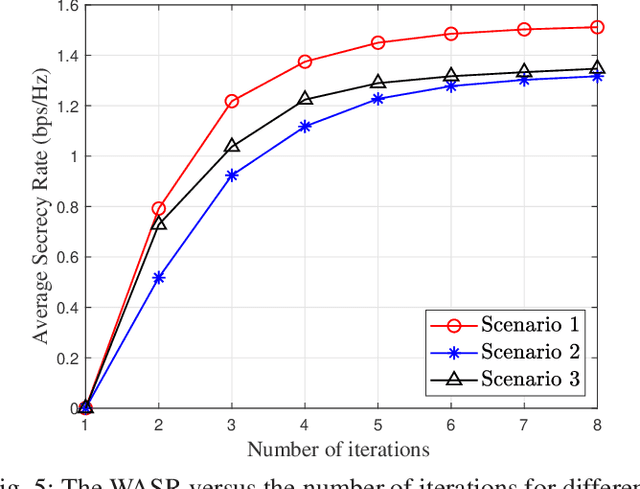
Abstract:Unmanned aerial vehicles (UAVs) can provide wireless access services to terrestrial users without geographical limitations and will become an essential part of the future communication system. However, the openness of wireless channels and the mobility of UAVs make the security of UAV-based communication systems particularly challenging. This work investigates the security of aerial cognitive radio networks (CRNs) with multiple uncertainties colluding eavesdroppers. A cognitive aerial base station transmits messages to cognitive terrestrial users using the spectrum resource of the primary users. All secondary terrestrial users and illegitimate receivers jointly decode the received message. The average secrecy rate of the aerial CRNs is maximized by jointly optimizing the UAV's trajectory and transmission power. An iterative algorithm based on block coordinate descent and successive convex approximation is proposed to solve the non-convex mixed-variable optimization problem. Numerical results verify the effectiveness of our proposed algorithm and show that our scheme improves the secrecy performance of airborne CRNs.
Joint Trajectory Design and User Scheduling of Aerial Cognitive Radio Networks
Apr 21, 2022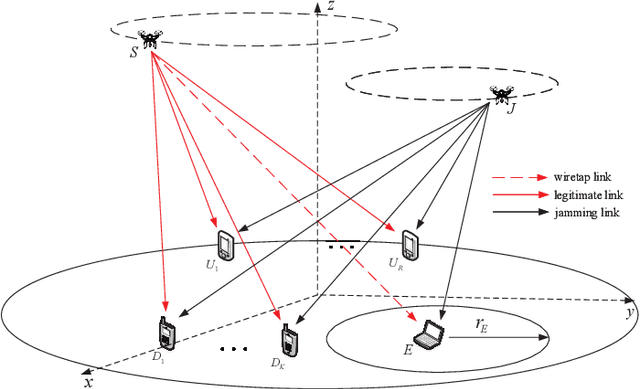
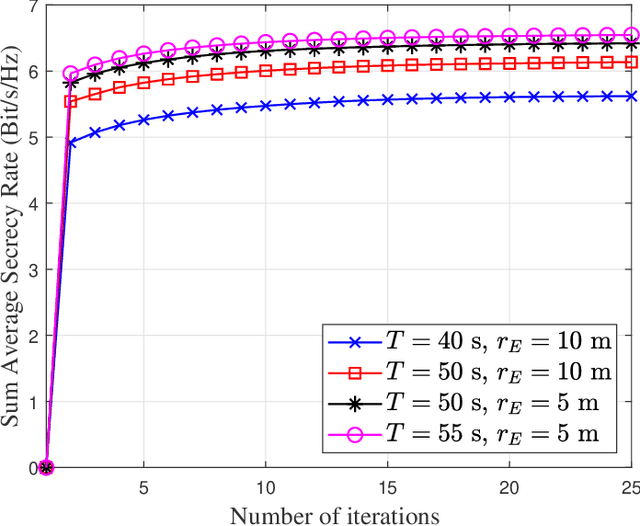
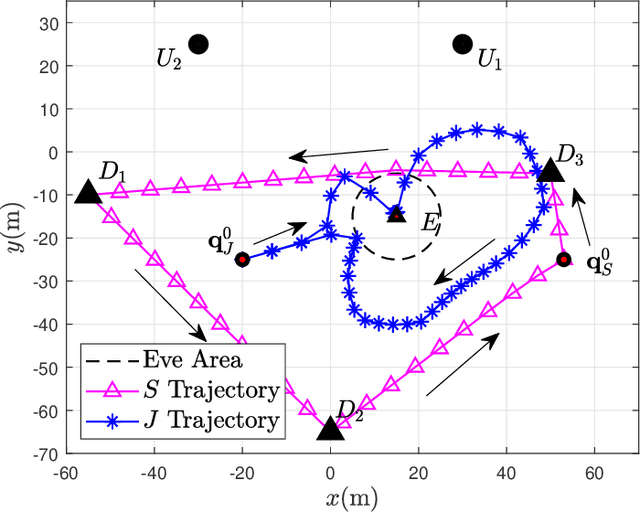
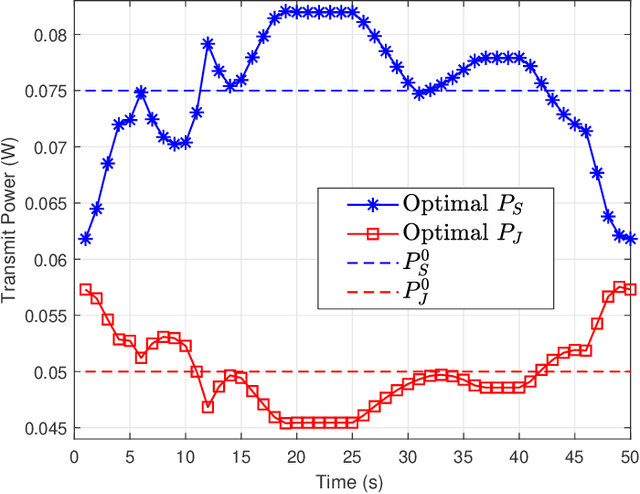
Abstract:Unmanned aerial vehicles (UAVs) have been widely employed to enhance the end-to-end performance of wireless communications since the links between UAVs and terrestrial nodes are line-of-sight (LoS) with high probability. However, the broadcast characteristics of signal propagation in LoS links make it vulnerable to being wiretapped by malicious eavesdroppers, which poses a considerable challenge to the security of wireless communications. This paper investigates the security of aerial cognitive radio networks (CRNs). An airborne base station transmits confidential messages to secondary users utilizing the same spectrum as the primary network. An aerial base station transmits jamming signals to suppress the eavesdropper to enhance secrecy performance. The uncertainty of eavesdropping node locations is considered, and the average secrecy rate of the cognitive user is maximized by optimizing multiple users' scheduling, the UAVs' trajectory, and transmit power. To solve the non-convex optimization problem with mixed multiple integers variable problem, we propose an iterative algorithm based on block coordinate descent and successive convex approximation. Numerical results verify the effectiveness of our proposed algorithm and demonstrate that our scheme is beneficial to improving the secrecy performance of aerial CRNs.
 Add to Chrome
Add to Chrome Add to Firefox
Add to Firefox Add to Edge
Add to Edge